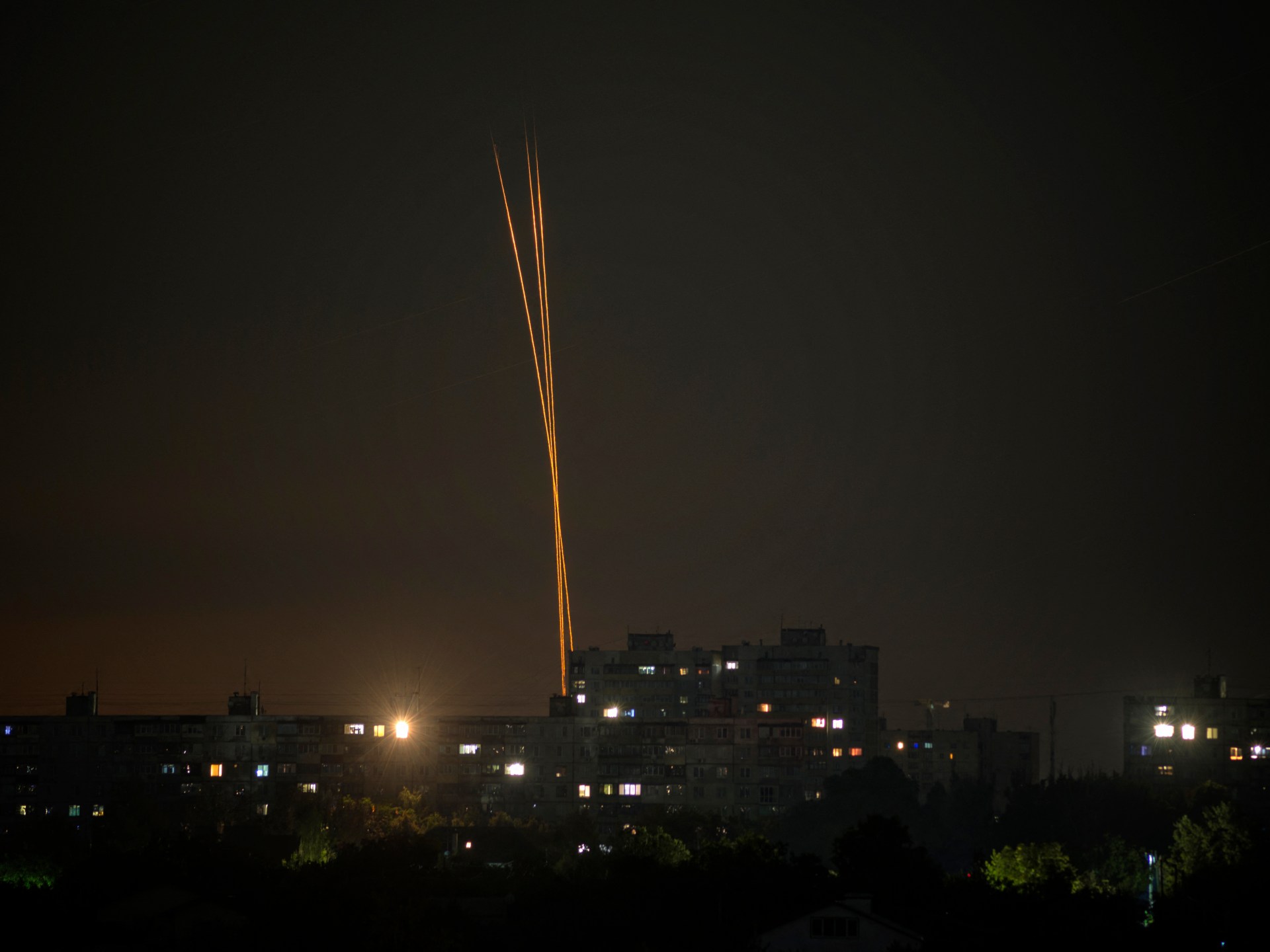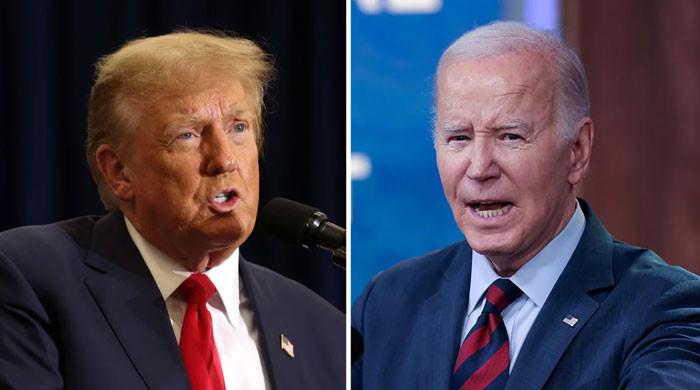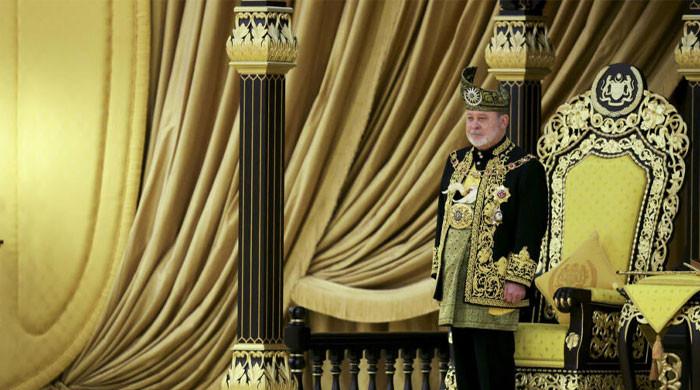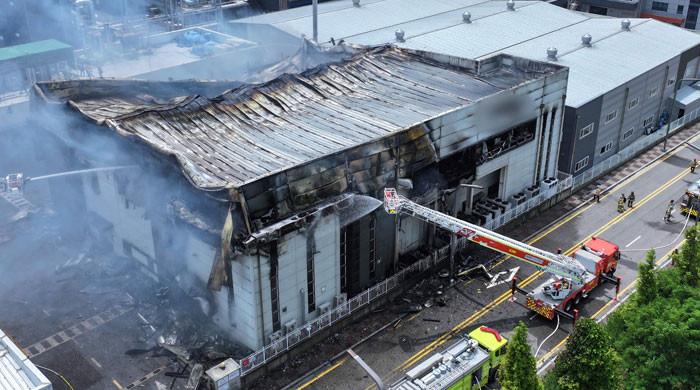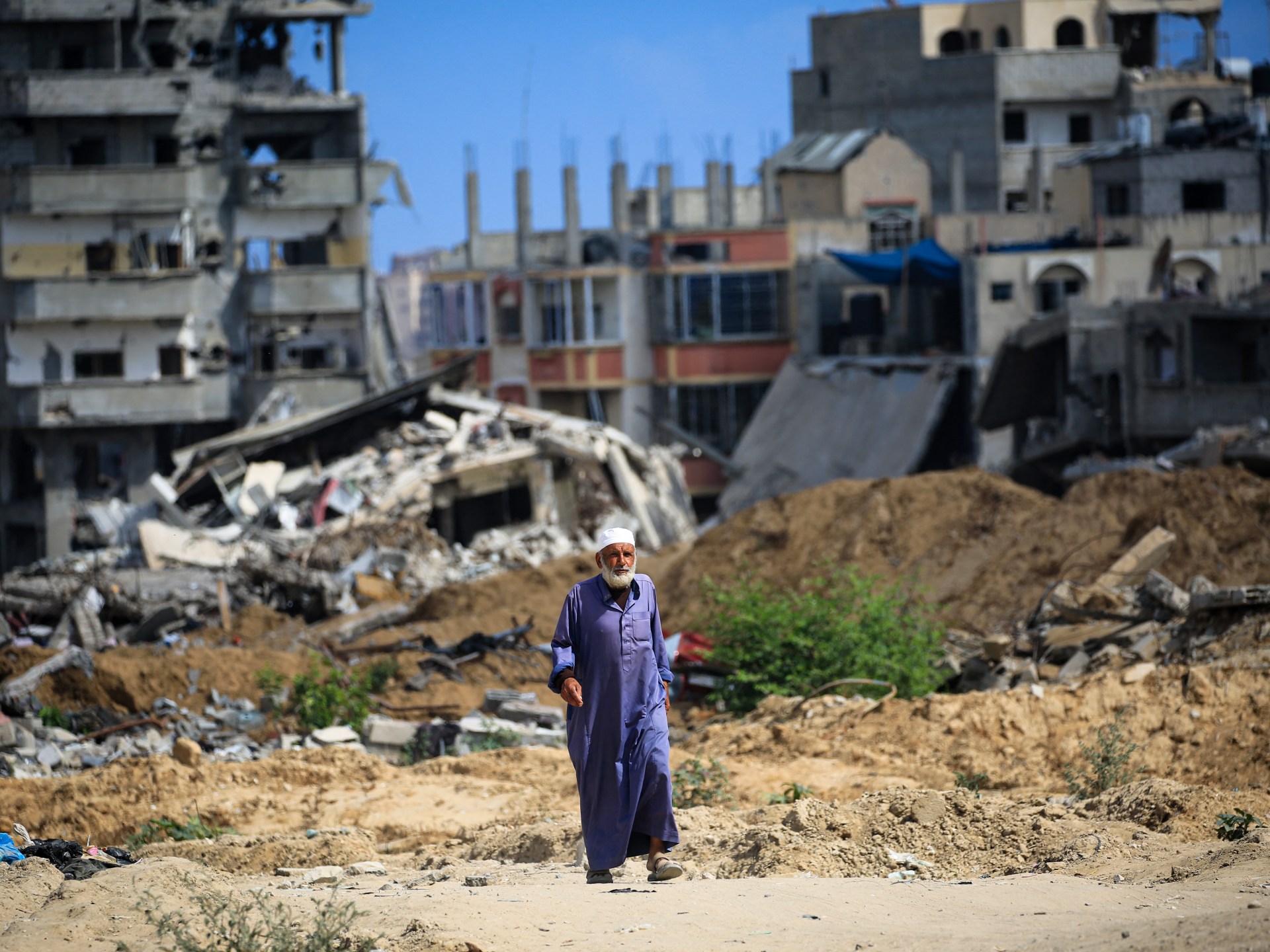Athens, Greece – Frustration with the United States for withholding critical financial and military aid from Ukraine came to light at the Delphi Economic Forum in Greece last week.
“The Russians are destroying Ukrainian power plants, which is a war crime, but unfortunately they are getting away with it because, as a collective West, we have not supplied Ukraine with enough missiles,” said Radoslaw Sikorski, former Polish foreign minister. and Defense. he told Al Jazeera on the sidelines of the meeting.
The day he spoke to Al Jazeera, Russia unleashed a barrage of about 80 missiles that completely destroyed a thermal power plant in kyiv, which supposedly has the best air defenses in the country.
It was only the second time in the war that an entire power station had been destroyed. Russia destroyed a plant in Kharkiv on March 24.
“You can't run modern cities without electricity. So I'm afraid that if we don't give the Ukrainians enough anti-aircraft or anti-missile elements in time, we may get another wave of refugees who can't stay in their own cities,” Sikorski said.
Poland already hosts almost a million Ukrainian refugees out of a total of six million in Europe.
Meanwhile, Republicans loyal to presidential candidate Donald Trump in the US House of Representatives have been afraid to challenge him by voting in favor of a $60.1 billion aid package that has been stalled since December, even though Democrats and Republicans in The Senate approved the bill. One commenter said he was “optimistic” it would now pass.
“We're past primary season, where members of Congress who might vote on hot-button issues in the wrong way for parts of their electorate are elected by people, particularly on the right,” said Charles Ries, a senior fellow at the RAND Corporation. . an American think tank.
“I've been hearing this 'next week' or 'next month' thing for about eight months, so I'll believe it when it happens,” Sikorski said.
There was also frustration that the European defense industry had been slow to ramp up munitions production and fill the void left by the United States.
“They are not producing enough even for themselves,” Ukrainian parliamentarian Yulia Klymenko told Al Jazeera. “For two years they have talked about maybe tomorrow or at the end of 2025 they will start production. It seems very irresponsible.”
“What the war in Ukraine showed was that… the rate of ammunition depletion is much faster than we had planned in advance, so we need to rearm ourselves and Ukraine. We need to strengthen our military-industrial capacity,” David Lidington, president of the Royal United Services Institute, a London-based think tank, told Al Jazeera.
Sikorski estimated that Europe had actually delivered the million artillery shells it promised Ukraine a year ago, in money or in kind.
A separate Czech initiative to buy shells stored around the world would deliver about another million by June, he said, when a new Russian offensive is expected.
“But let's compare this with the Russian production of 2 to 3 million [a year]”,” he said. “We have many more resources than them, but they have mobilized them better.”
European Union members have also committed to providing predictable, multi-year financial and military assistance to Ukraine.
'Ridiculous excuses'
Still, there was frustration with Germany for not supplying Taurus missiles with a range of 500 kilometers (310 miles), for fear they would be used to attack Russia, and with the US administration of Joe Biden for not supplying missiles with a range of 300 kilometers (186 miles). Tactical missiles (ATACM).
“I am sure that Russia does not have the ability to get Ukraine out of this war. They are banking on us not delivering on what is needed and almost winning by default,” said Ben Hodges, former commander of U.S. forces in Europe. “Let's get rid of all those ridiculous excuses about why we can't provide certain types of weapons.”
Much of the frustration with Europe centered on its apparent lack of perspective on the magnitude of the challenge. For example, European financial institutions hold more than $200 billion in Russian assets, but while the EU has decided to channel around $3.5 billion in revenue from investing that money to Ukraine, it has yet to decide how to touch the capital.
Klymenko blamed the European Commission, the EU executive, for focusing too much on keeping Ukrainian agricultural imports out of the EU.
“They don't realize that they are next. “It's like children playing with fire and not realizing that the fire will burn down their house,” Klymenko said, referring to fears of a Russian attack on NATO in the coming years.
But Europeans were beginning to understand the reality of what was at stake, said Hryhoriy Nemyria, vice president of Ukraine's parliament.
“What we are understanding more and more is that this [military] Help is not charity. We believe it is out of pure self-interest of those countries that are providing this aid and are now considering doubling it,” Nemyria told Al Jazeera.
That realization comes not too soon, he said.
Ukraine has been suffering from a weapons shortage since last summer, when it mounted a counteroffensive against well-prepared Russian positions and failed to breach them. Nine months earlier, he had defeated Russian forces in a counteroffensive that recaptured much of Kharkiv in the north and Kherson in the south.
The Kiel Institute for the World Economy, a German think tank, estimated that arms commitments by Ukraine's allies in August-October last year were 87 percent lower than during the same period in 2022, suggesting complacency. as a result of early success.
“We need to finally get high-precision, long-range weaponry, demining equipment… and artillery shells to breach the front. There is still time to do it,” Nemyria said.
Despite the fickleness of its allies, Ukraine continues to mobilize the only resource for which it is still solely responsible: manpower.
Last week it passed its third mobilization law since 2014, when it began its war against pro-Russian separatists in the east. Its goal is to recruit up to 300,000 new soldiers, bringing its armed forces to a total of 1.2 million men and women in uniform by the end of the year.
The additional troops represent six times the personnel it mustered for last year's counteroffensive, but it needs commitments from allies to equip these forces, meaning its demands will only grow.
Nemyria is optimistic about Ukraine's prospects.
Two years ago, he said, “it was quite strange to speak in European capitals and try to convince your interlocutors that Ukraine is a European nation.”
Ukraine has demonstrated its commitment to Europe and has paid for it in blood. That, she said, meant that Ukraine was being reborn as a European nation, and that the EU and Ukraine were united in both victory and defeat.
“Every nation in history has this moment of truth,” he said, “to prove that you are a real nation that deserves freedom or not.”


